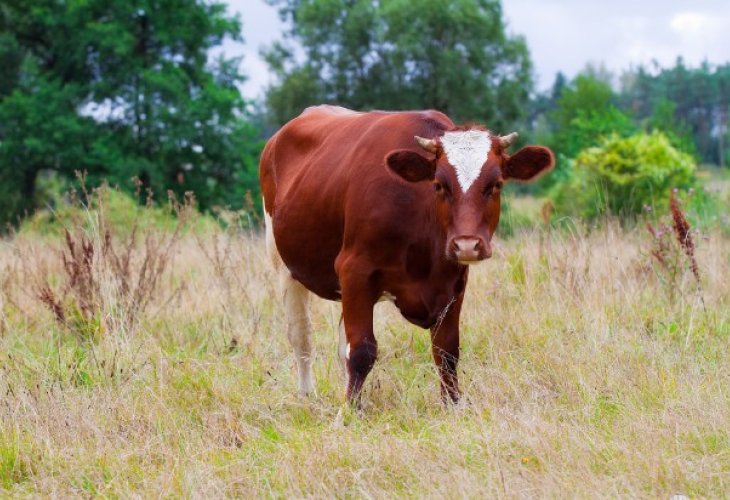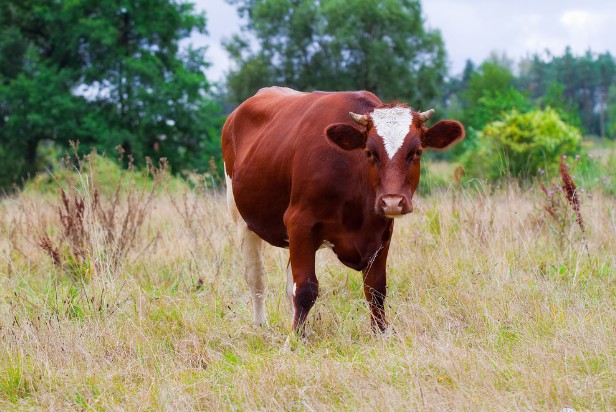Jewish Law
Parashat Parah: The Red Heifer and the Secret of Spiritual Purity Before Passover
Why we read about the Red Heifer before Nisan, the link to the Golden Calf and Mashiach, and how this ancient ritual teaches the meaning of inner purification today
- |Updated

This Shabbat, in addition to the regular weekly Torah portion, we read Parashat Parah (the Red Heifer). This special reading is added on the Shabbat before Parashat HaChodesh, which precedes the month of Nisan.
In the days leading up to the first Nisan after the Mishkan (Tabernacle) was inaugurated, the Israelites fulfilled the mitzvah of burning the Red Heifer. Its ashes were used to purify those who were ritually impure, enabling the entire nation to bring the Korban Pesach (Passover sacrifice) in purity. We therefore read Parashat Parah just before Parashat HaChodesh, in remembrance of that event.
The Red Heifer and the Coming of Mashiach
The Sages teach that nine Red Heifers were prepared from the time the commandment was first given until the destruction of the Second Temple.
The first was made by Moshe himself,
The second by Ezra the Scribe,
And seven more were prepared throughout the generations until the Temple’s destruction.
When Mashiach comes, he will prepare the tenth Red Heifer — speedily in our days, amen.
How the Red Heifer Was Prepared
The Sages exercised extreme care in all matters related to the Red Heifer.
Seven days before the burning of the heifer, the priest designated for this sacred task was placed in a special state of purity. During that time, they would sprinkle him with the ashes of previous Red Heifers — and this sprinkling was done by someone who had never become impure from contact with a corpse.
How did they find such people? In Jerusalem, special houses were built for this purpose, constructed on hollow rock foundations, ensuring no possibility of impurity from graves below. Women would give birth and raise their children in these houses, and the boys were kept there until they grew up without ever becoming impure.
When the time came, the young men were carried on doors placed atop oxen, so their feet would never touch the ground, and they were brought to the Shiloach spring to draw pure water. They were then transported — still on those doors, to the Temple Mount, where the area was guaranteed to be free of any graves. In this way, they remained completely pure and were fit to sprinkle the water on the priest who would burn the Red Heifer.

Is Reading Parashat Parah Today a Torah Obligation?
The halachic authorities disagree on this point. The Shulchan Aruch (Orach Chaim 146, 685) writes that the reading of Parashat Parah is a Torah obligation, citing the Tosafot in Berachot (13a).
According to many opinions, it is indeed a positive commandment from the Torah, while others view it as rabbinic. However, since there are those who consider it Torah-based, we act stringently and treat it as such.
Therefore:
The Torah scroll used must be kosher and mehudar (written to the highest halachic standard).
Both the reader and the congregation should have explicit intention to fulfill their obligation.
Women are also encouraged to attend and listen to the reading, since the mitzvah of purification — and preparing for the Passover offering, applies to them as well (Yalkut Yosef, Purim edition 5772).
Why Some Say It Is a Torah Commandment
The Yalkut Gershoni (Orach Chaim 685) explains that the Torah commands us to remember the sin of the Golden Calf, as it says: “Remember how you provoked the Lord your God to anger...” (Devarim 9:7)
However, the Magen Avraham (Orach Chaim 60:2) writes that the Sages did not institute a public reading of the Golden Calf story, as it would shame the people of Israel.
Instead, they established the reading of Parashat Parah, which atones for that sin but does not mention Israel’s guilt explicitly.
Thus, by reading Parashat Parah, we fulfill the mitzvah of remembering the Golden Calf — indirectly but positively.
The Haftorah and Its Meaning
After reading Parashat Parah, we read the Haftorah from Yechezkel 36, beginning with: “Son of man, when the house of Israel dwelled in their land...”
This passage includes the verse: “And I will sprinkle pure water upon you, and you shall be cleansed...”
Although the prophecy doesn’t discuss ritual impurity, it speaks of spiritual purification — cleansing the nation from sins and idolatry: “And I will sprinkle pure water upon you, and from all your filth and idols I will cleanse you. And I will give you a new heart...”
This spiritual message parallels the Red Heifer’s role — both symbolize the cleansing of the soul, preparing us for renewal and redemption.

